Economic Social

How does climate change impact the social and economic development of countries hosting climate refugees ?
Climate change leads to displacement of people, creating challenges for hosting countries in social and economic development. Social impacts include increased population, cultural conflicts, security concerns, and integration challenges. Economic impacts involve strained resources, unemployment issues, depletion of natural resources, and financial burden. Addressing these challenges requires coordinated efforts from various stakeholders.

How does social harmony impact economic development and stability ?
Social harmony is essential for economic development and stability, as it increases productivity, reduces conflict, improves governance, attracts foreign investment, and enhances social cohesion.

Are ESG investments more resilient during economic downturns ?
The text discusses the resilience of Environmental, Social, and Governance (ESG) investments during economic downturns. It defines ESG investments as those that prioritize sustainability, fair labor practices, and transparent operations. The importance of ESG criteria is highlighted in terms of risk management, stakeholder engagement, and long-term performance. The historical performance data suggests that ESG investments have performed comparably to non-ESG investments during previous economic downturns, potentially offering diversification benefits. The impact of ESG factors on resilience is discussed, including environmental factors, social factors, and governance factors. However, risks and challenges such as market sentiment and liquidity issues are also mentioned. The conclusion emphasizes that ESG investments have shown resilience during economic downturns due to their focus on long-term value creation and risk management strategies. It suggests that a well-diversified ESG portfolio can provide a balance between financial returns and positive social and environmental impacts, even during challenging economic times.

What are the social consequences of natural disasters caused by climate change ?
Natural disasters, intensified by climate change, have extensive social repercussions affecting health, economy, social order, education, and the environment. Immediate impacts include physical harm and mental distress, while long-term effects range from economic setbacks to environmental degradation. Addressing these consequences necessitates a multifaceted strategy encompassing emergency measures, recovery efforts, and sustainable development practices to foster community resilience.
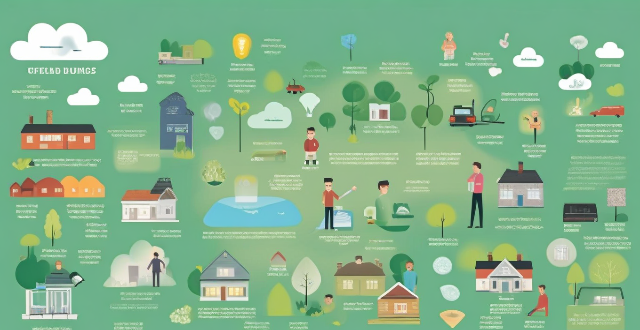
What are the social implications of environmental degradation ?
The article discusses the social implications of environmental degradation, including health impacts such as air pollution and water pollution, economic impacts such as loss of biodiversity and job losses, social impacts such as displacement and cultural loss, and political impacts such as conflicts and refugees. It emphasizes the need for collective action to address these challenges and protect the natural environment for future generations.

What are the economic costs of environmental degradation ?
The text discusses the economic costs of environmental degradation, which include both direct and indirect costs. Direct costs are easily quantifiable and include resource depletion, health impacts, agricultural losses, and infrastructure damage. Indirect costs are more difficult to quantify but still have significant economic impacts, such as lost biodiversity, reduced quality of life, social unrest, and climate change mitigation costs. The text emphasizes the importance of addressing environmental issues for long-term economic stability and growth.

What are the key factors that contribute to social harmony ?
Social harmony is a state of peaceful coexistence and cooperation among individuals, groups, and communities within a society. Key factors contributing to social harmony include respect for diversity, communication and dialogue, education and awareness, equality and fairness, law and order, civic participation and volunteerism, and economic stability and prosperity. By promoting these factors, societies can create a more peaceful and cooperative environment where everyone can thrive.

What is social inclusion and why is it important ?
Social inclusion refers to the process of ensuring that all individuals can participate in all aspects of society. It aims to create a society where everyone feels valued, regardless of their background. Key elements include equal opportunities, non-discrimination, participation, empowerment, and solidarity. Social inclusion is important for promoting equity and fairness, enhancing economic growth, improving health and well-being, reducing poverty and exclusion, enhancing social cohesion, and supporting sustainable development.

How can climate and environmental policies be designed to promote sustainable economic growth ?
This text discusses the integration of environmental considerations into economic planning, promoting renewable energy sources, encouraging energy efficiency, supporting green infrastructure, promoting circular economy practices, strengthening environmental regulations, and fostering international cooperation to promote sustainable economic growth.

What are the economic benefits of investing in clean production technologies ?
Investing in clean production technologies can bring a range of economic benefits to businesses, governments, and society at large. These benefits include cost savings through energy efficiency, resource efficiency, reduced maintenance costs, market advantages such as enhanced brand image and access to new markets, risk mitigation from environmental regulations and resource scarcity, innovation and growth opportunities, and broader environmental and social benefits that contribute to long-term economic prosperity.
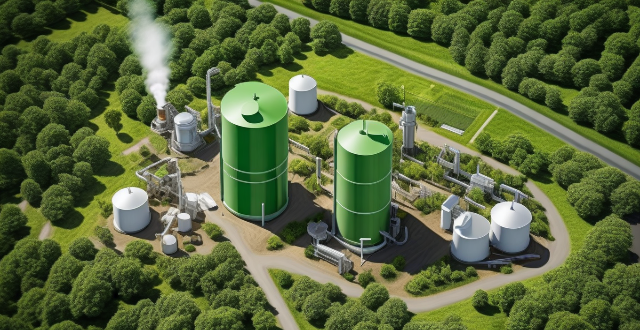
What are the economic implications of reducing greenhouse gas emissions ?
Reducing greenhouse gas emissions is essential for mitigating climate change but has economic implications. The shift to renewable energy requires initial investments but can create jobs and reduce reliance on fossil fuels. It fosters innovation and green jobs but may impact fossil fuel industries negatively. Regulatory changes like carbon pricing and compliance standards can increase operational costs for businesses. Globally, it affects market dynamics and trade, with potential for carbon leakage and competitive advantages in green technology markets. Consumer behavior might shift towards sustainable consumption and energy efficiency. Social welfare considerations include equity concerns and potential health benefits from reduced air pollution. Balancing environmental goals with economic factors is key to a successful transition to a low-carbon economy.

What are some successful examples of promoting social harmony globally ?
Successful Examples of Promoting Social Harmony Globally: UN, EU, AU, ASEAN
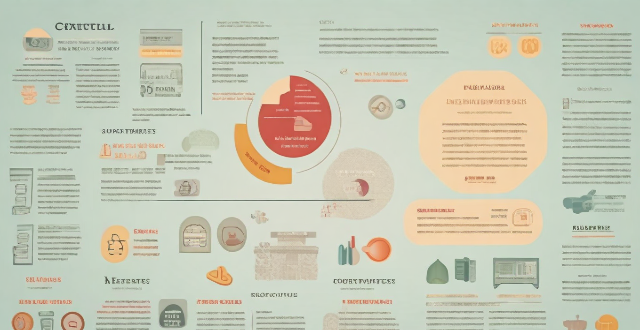
What is the GDP and why is it considered a crucial economic indicator ?
GDP is a crucial economic indicator that measures the market value of all final goods and services produced by a country in a specific time period. It serves as a measure of economic activity, national wealth, and a benchmark for international comparisons. GDP also impacts financial markets, reflects the standard of living, influences global perceptions, and drives employment opportunities. However, it should be considered in conjunction with other indicators for a more holistic understanding of an economy's health.
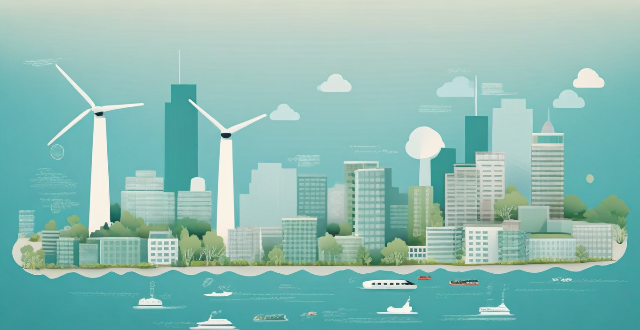
What are the economic implications of a climate emergency ?
The climate emergency, primarily caused by human activities, has significant economic implications affecting various sectors of the global economy. These include impacts on natural resources such as water scarcity, soil degradation, and energy supply; loss of biodiversity affecting ecosystem services and tourism; reduced crop yields and livestock production affecting agriculture and food security; risks to infrastructure and urban areas from flooding and heat waves; direct and indirect effects on human health; and broader impacts on global economic growth and international trade. Addressing these challenges requires coordinated efforts from governments, businesses, and individuals around the world to reduce greenhouse gas emissions and adapt to the changing climate.

What challenges do climate refugees face when migrating to new countries ?
Climate refugees face various challenges when migrating to new countries, including social integration, economic stability, and legal recognition. Social issues involve cultural integration, access to education, and building social support networks. Economic challenges include finding employment, achieving financial stability, and accessing basic services. Legal issues encompass recognition as refugees, legal status and rights, and navigating the asylum process. Addressing these challenges requires efforts from sending and receiving nations, as well as international organizations.
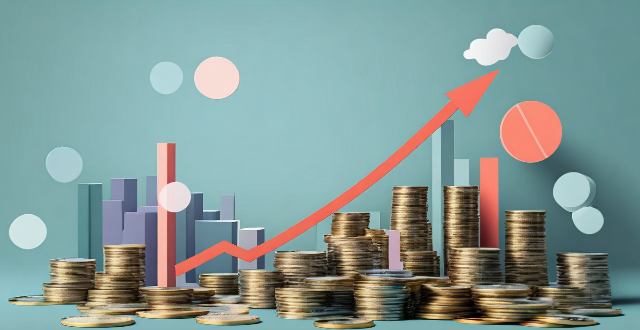
Can economic indicators accurately predict a recession ?
Economic indicators, such as GDP growth rate, employment rate, inflation rate, interest rates, consumer sentiment, and manufacturing/service sector activity, are used to gauge the health of an economy. While these indicators provide valuable insights, their ability to predict a recession is not absolute due to limitations like lagging indicators, false signals, external factors, and policy responses. A combination of indicators and a probabilistic approach can improve accuracy in predicting economic downturns.

What are the consequences of not having adequate environmental legislation ?
The text discusses the importance of adequate environmental legislation and its absence's consequences. It outlines the impact on environmental degradation, human health, economic stability, and social welfare. The introduction emphasizes the need for such laws for sustainable development and planet protection. Four main points are discussed: 1. Environmental Degradation includes loss of biodiversity, pollution, deforestation, and ocean acidification. 2. Human Health Impacts cover respiratory problems, waterborne diseases, and food safety concerns. 3. Economic Implications involve resource depletion, job losses, and tourism decline. 4. Social Welfare Issues include inequality, displacement, and conflict over resources. The conclusion stresses the urgency for governments worldwide to implement and enforce strong environmental laws for a sustainable future.

How does climate change affect social structures and relationships ?
The impact of climate change extends beyond environmental changes to significantly affect social structures and human relationships. This includes alterations in living conditions such as resource scarcity and habitat loss, economic disruptions like job market fluctuations and industry adaptations, increased social stress and migration, health implications including direct effects and mental health considerations, political and governance challenges involving policy implementation and legal frameworks, and cultural shifts towards environmental consciousness and education. These transformations necessitate societal adaptation and evolution to confront the multifaceted challenges posed by a changing climate.

What are the benefits of green jobs ?
Green jobs, also known as sustainable jobs or eco-friendly employment, refer to positions that contribute positively to the environment and help in mitigating climate change. These jobs are often focused on renewable energy, energy efficiency, pollution control, waste management, and environmental conservation. The benefits of green jobs are multifaceted and can be categorized into economic, environmental, and social dimensions. In summary, green jobs offer a triple win by stimulating economic growth, protecting the environment, and enhancing social well-being. As societies continue to prioritize sustainability, the importance of these jobs will only increase, making them a cornerstone of future employment landscapes.

What are the economic impacts of floods and how can they be minimized ?
Floods have significant economic impacts on communities, affecting various sectors of the economy. Direct impacts include property damage, crop loss, and business disruption, while indirect impacts encompass job losses, population displacement, and economic downturns. To minimize these effects, strategies such as flood defense infrastructure, early warning systems, emergency plans, flood insurance, microfinance, land-use planning, building codes, public awareness campaigns, and capacity building are recommended. By adopting a comprehensive approach, communities can enhance their resilience and reduce the economic repercussions of flooding.

How is climate change contributing to conflicts around the world ?
Climate change is increasingly recognized as a driver of global conflicts. The effects of global warming, such as extreme weather events and economic impacts, contribute to social stressors and political instability. Droughts, floods, and coastal erosion can lead to water scarcity, displacement, and refugee crises. Economic impacts include agricultural decline and resource depletion, which can result in rural poverty and loss of livelihoods. Social stressors such as health crises and population displacement can strain healthcare systems and lead to refugee crises and social tensions. Political instability can arise from governance challenges and national security threats. Addressing these challenges requires a comprehensive approach that incorporates adaptation, mitigation, and conflict resolution strategies at local, national, and international levels.

How can we balance economic development and water resource protection ?
Water resources are crucial for economic development but must be protected to ensure sustainability. Strategies for balancing these goals include prioritizing sustainable practices, implementing regulatory measures, fostering collaboration and partnerships, investing in infrastructure and technology, and educating and creating awareness. By adopting these approaches, we can achieve a balance between economic growth and water conservation, ensuring long-term sustainability for all.

Can sports be used as a tool for social change and community development ?
This text discusses the potential of sports as a tool for social change and community development. It highlights how sports can break down barriers, promote health and well-being, and contribute to education and personal development. The article also explores how sports can address social issues, empower communities economically, and promote peace and reconciliation. However, it emphasizes the need for equitable resource allocation, accessibility, and sustainability to fully realize the potential of sports in societal transformation.

What impact does consumer confidence have on economic recovery ?
Consumer confidence is a key driver of economic recovery. It stimulates growth, boosts employment rates, reduces unemployment, and increases government revenue. To improve consumer confidence, governments should encourage stable economic policies, provide financial education, promote transparency, and invest in infrastructure.
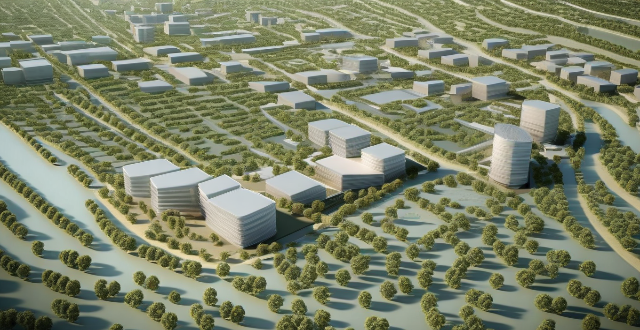
How do economic systems contribute to environmental problems and climate change ?
Economic systems, especially capitalism and industrialization, significantly impact the environment by promoting overproduction, waste, and reliance on fossil fuels. Issues such as built-in obsolescence, global trade emissions, and exploitation of natural resources exacerbate environmental problems. Additionally, population growth and urbanization increase consumption, while market failures and regulatory gaps often overlook environmental costs. Addressing these challenges requires a shift in economic priorities towards sustainability.

What are the benefits of social inclusion for individuals and society as a whole ?
Social inclusion benefits individuals and society by promoting equality, diversity, and participation. Individuals experience enhanced quality of life, greater opportunities, improved mental health, increased self-esteem, and strengthened social support networks. Society benefits from economic growth, reduced poverty and inequality, improved public services, enhanced social cohesion, increased civic engagement, promotion of human rights, a positive global image, and intergenerational equity.
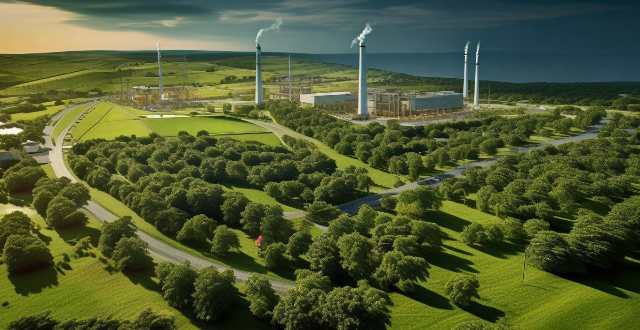
How can we balance economic growth with environmental sustainability ?
Balancing economic growth with environmental sustainability requires a multifaceted approach that includes promoting green infrastructure and renewable energy, encouraging sustainable business practices, fostering innovation and technology development, educating and engaging stakeholders, and implementing policies and regulations. By taking these steps, we can create a more sustainable future where economic prosperity coexists with environmental well-being. Achieving this balance will require ongoing effort from all sectors of society, including governments, businesses, communities, and individuals alike.
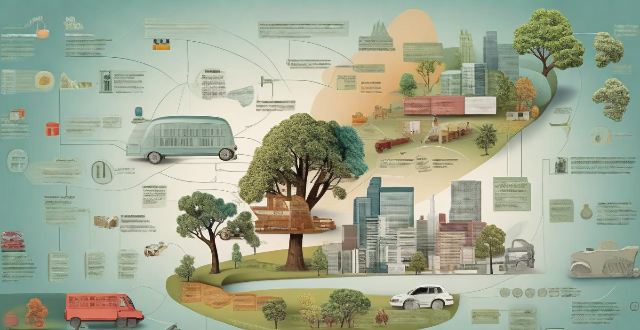
What is an economic stimulus plan ?
An economic stimulus plan is a government policy aimed at boosting a country's economy during times of slow growth or recession. The primary goal of such plans is to increase consumer spending, encourage business investments, and create jobs, thereby stimulating economic activity and promoting overall growth. Key features of an economic stimulus plan include tax cuts and rebates, government spending on infrastructure projects, monetary policy adjustments, direct assistance to businesses and individuals, and incentives for investment. Benefits of an economic stimulus plan include increased economic growth, job creation, long-term gains, and reduced poverty rates. However, potential downsides of an economic stimulus plan include national debt, inflation risks, crowding out effect, and short-term vs long-term effects. In conclusion, an economic stimulus plan is a multifaceted approach employed by governments to revive flagging economies. While these plans can have significant positive impacts on growth, employment, and overall well-being, they must be carefully designed and implemented to minimize potential drawbacks such as increased national debt and inflation risks.

How do changes in immigration policy influence economic growth ?
Changes in immigration policy can have a significant impact on economic growth by increasing the labor force, promoting diversity, increasing consumer spending, reducing wage inflation, and increasing tax revenue.

What is the outlook for the European Union's economic recovery ?
The economic recovery of the European Union (EU) depends on political stability, global economic conditions, and domestic policies. Unity among member states and effective governance are crucial for managing crises and implementing growth-promoting policies. Global trade dynamics and supply chain disruptions also play a significant role. Domestically, fiscal stimulus, structural reforms, and a balanced green transition are key. The outlook is optimistic but uncertain, with many influencing factors.